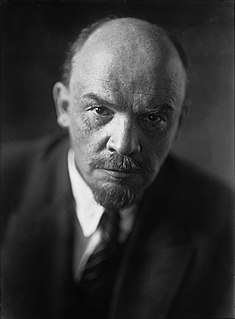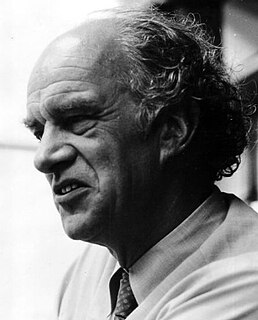Related Research Articles
Classical liberalism is a political tradition and a branch of liberalism that advocates free market and laissez-faire economics; civil liberties under the rule of law with especial emphasis on individual autonomy, limited government, economic freedom, political freedom and freedom of speech. It gained full flowering in the early 18th century, building on ideas stemming at least as far back as the 13th century within the Iberian, Anglo-Saxon, and central European contexts and was foundational to the American Revolution and "American Project" more broadly.

Democracy is a form of government in which the people have the authority to deliberate and decide legislation, or to choose governing officials to do so. Who is considered part of "the people" and how authority is shared among or delegated by the people has changed over time and at different rates in different countries, but over time more and more of a democratic country's inhabitants have generally been included. Cornerstones of democracy include freedom of assembly, association, property rights, freedom of religion and speech, inclusiveness and equality, citizenship, consent of the governed, voting rights, freedom from unwarranted governmental deprivation of the right to life and liberty, and minority rights.

Leninism is a political ideology developed by Russian Marxist revolutionary Vladimir Lenin that proposes the establishment of the dictatorship of the proletariat led by a revolutionary vanguard party as the political prelude to the establishment of communism. The function of the Leninist vanguard party is to provide the working classes with the political consciousness and revolutionary leadership necessary to depose capitalism in the Russian Empire (1721–1917). Leninist revolutionary leadership is based upon The Communist Manifesto (1848), identifying the communist party as "the most advanced and resolute section of the working class parties of every country; that section which pushes forward all others." As the vanguard party, the Bolsheviks viewed history through the theoretical framework of dialectical materialism, which sanctioned political commitment to the successful overthrow of capitalism, and then to instituting socialism; and, as the revolutionary national government, to realise the socio-economic transition by all means.
Totalitarian democracy or anarcho-monarchism is a term popularized by Israeli historian Jacob Leib Talmon to refer to a system of government in which lawfully elected representatives maintain the integrity of a nation state whose citizens, while granted the right to vote, have little or no participation in the decision-making process of the government. The phrase had previously been used by Bertrand de Jouvenel and E. H. Carr, and subsequently by F. William Engdahl and Sheldon S. Wolin.

Walter Lippmann was an American writer, reporter and political commentator. With a career spanning 60 years he is famous for being among the first to introduce the concept of Cold War, coining the term "stereotype" in the modern psychological meaning, as well as critiquing media and democracy in his newspaper column and several books, most notably his 1922 book Public Opinion.

Democratization, or democratisation, is the transition to a more democratic political regime, including substantive political changes moving in a democratic direction. It may be the transition from an authoritarian regime to a full democracy, a transition from an authoritarian political system to a semi-democracy or transition from a semi-authoritarian political system to a democratic political system.

Rudolph Joseph Rummel was an American political scientist and professor at the Indiana University, Yale University, and University of Hawaiʻi. He spent his career studying data on collective violence and war with a view toward helping their resolution or elimination. Contrasting genocide, Rummel coined the term democide for murder by government, such as the genocide of indigenous peoples and colonialism, Nazi Germany, the Stalinist purges, Mao Zedong's Cultural Revolution, and other authoritarian, totalitarian, or undemocratic regimes, coming to the conclusion that democratic regimes result in the least democides.

Oskar Ryszard Lange was a Polish economist and diplomat. He is best known for advocating the use of market pricing tools in socialist systems and providing a model of market socialism. He responded to the economic calculation problem proposed by Ludwig von Mises and Friedrich Hayek by claiming that managers in a centrally-planned economy would be able to monitor supply and demand through increases and declines in inventories of goods, and advocated the nationalization of major industries. During his stay in the United States, Lange was an academic teacher and researcher in mathematical economics. Later in socialist Poland, he was a member of the Central Committee of the Polish United Workers' Party.

Karl Gunnar Myrdal was a Swedish economist and sociologist. In 1974, he received the Nobel Memorial Prize in Economic Sciences along with Friedrich Hayek for "their pioneering work in the theory of money and economic fluctuations and for their penetrating analysis of the interdependence of economic, social and institutional phenomena." When his wife, Alva Myrdal, received the Nobel Peace Prize in 1982, they became the fourth ever married couple to have won Nobel Prizes, and the first to win independent of each other. He is best known in the United States for his study of race relations, which culminated in his book An American Dilemma: The Negro Problem and Modern Democracy. The study was influential in the 1954 landmark U.S. Supreme Court Decision Brown v. Board of Education. In Sweden, his work and political influence were important to the establishment of the Folkhemmet and the welfare state. Myrdal and his wife advocated for social engineering.

Mançur Lloyd Olson Jr. was an American economist and political scientist who taught at the University of Maryland, College Park. His most influential contributions were in institutional economics, and in the role which private property, taxation, public goods, collective action, and contract rights play in economic development.

Centre-right politics lean to the right of the political spectrum, but are closer to the centre. From the 1780s to the 1880s, there was a shift in the Western world of social class structure and the economy, moving away from the nobility and mercantilism, towards capitalism. This general economic shift toward capitalism affected centre-right movements, such as the Conservative Party of the United Kingdom, which responded by becoming supportive of capitalism.
William Eugene Connolly is an American political theorist known for his work on democracy, pluralism, capitalism and climate change. He is the Krieger-Eisenhower Professor of Political Science at Johns Hopkins University. His 1974 work The Terms of Political Discourse won the 1999 Benjamin Lippincott Award.

Carl Lotus Becker was an American historian of the Age of Enlightenment in America and Europe.

Power: A New Social Analysis by Bertrand Russell is a work in social philosophy written by Bertrand Russell. Power, for Russell, is one's ability to achieve goals. In particular, Russell has in mind social power, that is, power over people.

Liberal democracy is the combination of a liberal political ideology that operates under an indirect democratic form of government. It is characterized by elections between multiple distinct political parties, a separation of powers into different branches of government, the rule of law in everyday life as part of an open society, a market economy with private property, and the equal protection of human rights, civil rights, civil liberties and political freedoms for all people. To define the system in practice, liberal democracies often draw upon a constitution, either codified or uncodified, to delineate the powers of government and enshrine the social contract. After a period of expansion in the second half of the 20th century, liberal democracy became a prevalent political system in the world.

Dankwart Alexander Rustow was a professor of political science and sociology specializing in comparative politics. He is prominent for his research on democratization. In his seminal 1970 article 'Transitions to Democracy: Toward a Dynamic Model,' Rustow broke from the prevailing schools of thought on how countries became democratic. Disagreeing with the heavy focus on necessary social and economic pre-conditions for democracy, he argued that national unity was the necessary precondition for democracy.

Fred Manville Taylor was a U.S. economist and educator best known for his contribution to the theory of market socialism. He taught mostly history at Albion College from 1879 to 1892. He taught in the department of economics at University of Michigan from 1892 to 1929 after receiving his Ph.D. in political philosophy there in 1888. His Principles of Economics (1911) went through 9 editions. Of a libertarian ideology, he was noted as a clear and rigorous expositor of economic theory in the partial-equilibrium lineage of Alfred Marshall.
Liberalism is a political and moral philosophy based on the rights of the individual, liberty, consent of the governed, political equality and equality before the law. Liberals espouse various views depending on their understanding of these principles. However, they generally support private property, market economies, individual rights, liberal democracy, secularism, rule of law, economic and political freedom, freedom of speech, freedom of the press, freedom of assembly, and freedom of religion. Liberalism is frequently cited as the dominant ideology of modern times.

Benjamin Oliver Davis Jr. was a United States Air Force (USAF) general and commander of the World War II Tuskegee Airmen.

Harry Wellington Laidler was an American socialist writer, magazine editor, and politician. He is best remembered as Executive Director of the League for Industrial Democracy, successor to the Intercollegiate Socialist Society, and for his close political association with perennial Socialist Party Presidential nominee Norman Thomas. He also served a two-year term on the New York City Council.